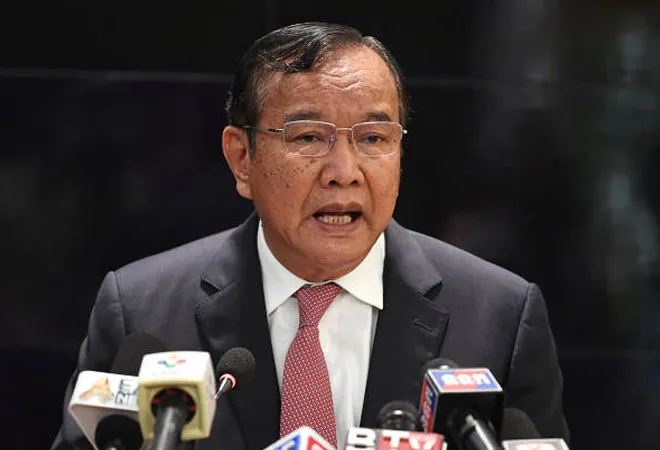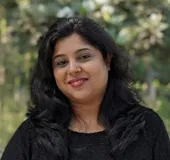-
CENTRES
Progammes & Centres
Location
Although highly-measured steps were taken, the Special Envoy to Myanmar managed to make some headway during the Myanmar visit

The three-day visit of Prak Sokhonn, ASEAN’s Special Envoy to Myanmar hopes to honour and implement the Five-Point Consensus set by the regional bloc last April. The Special Envoy along with Dato Lim Jock Hoi, ASEAN Secretary-General; Kitti Settha Pandita Cham Prasidh, Cambodian Minister of Industry, Science, Technology and Innovation; Chhouk Bunna, Cambodian Ambassador to Myanmar, Cambodian deputy ministers, and relevant officials travelled to facilitate conversations around the development of Myanmar with a focus on ASEAN solidarity. As the most anticipated visit came to an end on 23 March, it’s time to reflect on whether this visit will open doors for future negotiations or will Myanmar continue to apply its weighted strategy in ruling the second year.
ASEAN began diplomatic initiatives to limit the mayhem unleashed by the military coup as the elected leader Aung San Suu Kyi’s government was toppled and the leaders arrested in February last year. This triggered mass protests and conflict with ethnic armed groups and citizens, resulting in a growing number of deaths, arrests, and massive displacement issues.
ASEAN began diplomatic initiatives to limit the mayhem unleashed by the military coup as the elected leader Aung San Suu Kyi’s government was toppled and the leaders arrested in February last year.
The Five-Point Consensus has been a tool designed by ASEAN to condense and diffuse the situation of disharmony within Myanmar that has the potential to engulf the entire region. For the implementation of this, the first step was to select a special envoy, who can travel on a monthly or quarterly basis to Naypyidaw to overlook the current situation and can give timely reports to the regional organisation as well as push for a dialogue with both the Junta and the other parties at the earliest.
The selection of a special envoy took an entire year to accomplish since the military government was not happy with the choices the ASEAN members offered. The bloc members became impatient and dissatisfied with the Junta’s implicit non-cooperation. Subsequently, the Junta leader was uninvited in the ASEAN Summit for not honouring its peace plan, and the subsequent non-representation of Myanmar from the forum questioned its future existence within the regional grouping. It was only after the Cambodian Prime Minister took the ASEAN chair in 2022 and aimed to reengage with the Myanmar government that things slowly started moving along. Whether it is moving in a positive direction is too soon to tell.
All eyes are currently on Prak Sokhonn, in hopes of that he will be able to achieve “satisfactory progress”. The current visit anticipates opening the possibility to begin discussions with all political parties within Myanmar and calls for an end to violence and disbursal of humanitarian relief. After the end of three days, the envoy acknowledges that the Myanmar issue will take considerable time to solve. While some of the requests made by the envoy were granted, the major ones remain unfulfilled.
The Junta leader was uninvited in the ASEAN Summit for not honouring its peace plan, and the subsequent non-representation of Myanmar from the forum questioned its future existence within the regional grouping.
During the meeting on 21 March with General Min Aung Hlaing; U Wunna Maung Lwin, Foreign Minister; U Ko Ko Hlaing, International Cooperation Minister; and U Ko Ko Gyi, People’s Party Chairman, both sides deliberated on a number of issues ranging from voter fraud in the 2020 elections to the protests, the damage to government properties, and the security measures supposedly taken by State Administration Council (SAC) to protect the lives of the people. They also spoke about the operationalisation of the Five-Point Consensus, the distribution of humanitarian assistance which may begin from April, ways to promote ASEAN cooperation, and further outcomes of this and the other meetings.
According to Sokhonn, he has advised Min Aung Hlaing to exercise utmost restraint in using force, to reduce tensions. As of 24 March, 1,704 protesters have been killed including at least 44 children. A 7-year-old girl was shot in her home, and there are reports of hundreds of children and young people being imprisoned. The previous year, at least 150,000 children have been forced to flee their homes. The situation remains extremely grim.
A major shortcoming of the visit was the special envoy’s inability to meet all parties. Prak Sokhonn had earlier wished to be permitted to meet members of the National Unity Government (NUG) which is a shadow government consisting of NLD leaders and members of some ethnic parties established right after the prominent NLD leaders were arrested. As the military has labelled the group “terrorists”, the plea to meet them was declined.
Sokhonn has stated that he did not make a direct appeal to meet Daw Aung San Suu Kyi since it was the very reason that his predecessor, Erywan Yusof as a special envoy failed to visit Myanmar. However, he has been hinted by Min Aung Hlaing that it may be possible for him to meet the ex-State Counsellor in the future.
While meeting with Peace Process Steering Team (PPST), a group comprising of a few ethnic armed organisations (EAOs) was planned; however, it was cancelled due to a ‘tight schedule’ as mentioned by the military administration. Also, the Special Envoy regretted not meeting the former First Lady, Daw Su Su Lwin, due to her health reasons. This shows that the military government is being highly selective towards the ASEAN peace process in a style that best suits its own interests.
Sokhonn’s approach to this issue is to take one step at a time, accepting what is being given to begin the process of dialogues and negotiations.
It is quite evident that it will take some time before Sokhonn is able to conduct the so-called comprehensive dialogue with all the stakeholders as stated in the Five-Point Consensus. Sokhonn’s approach to this issue is to take one step at a time, accepting what is being given to begin the process of dialogues and negotiations. While this is satisfactory, given the current situation, however, much more needs to be done eventually.
Japan’s Special Envoy to Myanmar, Yohei Sasakawa, who is also an advisor to the ASEAN Special Envoy, met with some EAOs, as well as the PPST, on 10 March in Thailand. At the meeting, the Japanese government assured to deliver 50,000 sacks of rice to the displaced people in territories held by the EAOs. A two-day meeting will be held by the PPST in Thailand to discuss the outcome of the ASEAN Special Envoy's visit.
In this respect, the ASEAN Special Envoy needs to engage with his advisors and form a comprehensive plan on how to conduct future meetings with different stakeholders. Meetings with other parties, especially the EAOs and NUG are essential to get an all-inclusive picture so that proper solutions can be worked out. The EAOs have expressed their wish to meet with the Special Envoy outside Myanmar, if possible, not under the terms set by Junta.
While this is true, much depends on the strategic manoeuvring of the SAC through which the Junta government is operating. But given the hardiness that some ASEAN member states, like Malaysia, Singapore, display towards the Myanmar Junta, only time will tell what initiatives are best suited to advance future endeavours if violence is to be toned down and appropriate resolutions are to be designed. It needs to be understood that not all complications can be resolved during any one chairmanship. This will remain a continuous process that the regional grouping needs to address collectively.
The views expressed above belong to the author(s). ORF research and analyses now available on Telegram! Click here to access our curated content — blogs, longforms and interviews.

Sreeparna Banerjee is an Associate Fellow in the Strategic Studies Programme. Her work focuses on the geopolitical and strategic affairs concerning two Southeast Asian countries, namely ...
Read More +